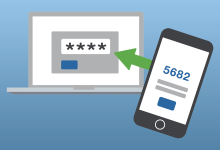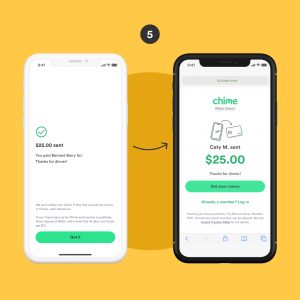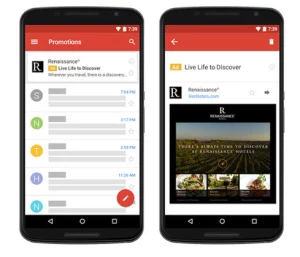
As the e-commerce industry continues to grow, brands are constantly looking for new and innovative ways to reach their target audience. WhatsApp has emerged as a powerful marketing tool for e-commerce brands, providing a direct and personal way to communicate with customers. With over 2 billion active users worldwide, WhatsApp offers a massive potential audience for businesses to tap into. In this article, we will explore some key WhatsApp marketing strategies that e-commerce brands can implement to improve their reach, engagement, and ultimately drive sales.
What is an e-commerce brand?
An e-commerce brand is a business that operates primarily online, selling products or services through their website or mobile app. These brands rely on digital technologies to manage their sales, marketing, and customer service operations. They may also use various online platforms, such as social media, search engines, and email marketing, to reach and engage with their target audience. E-commerce brands can range from small, niche businesses to large, multinational corporations, and can sell a wide variety of products and services, including physical goods, digital products, and subscriptions.
WhatsApp and e-commerce
WhatsApp has become an increasingly popular platform for e-commerce businesses to connect with their customers. With its massive user base and extensive features, WhatsApp provides a direct and personal way for brands to communicate with their audience. The introduction of WhatsApp Business has help alot to make WhatsApp an ideal media for E-commerce brands to reach their audiences and attain their golas. E-commerce brands can use WhatsApp for a variety of marketing purposes, such as sending personalized product recommendations, offering customer support, sending order updates, and facilitating transactions.
One of the key benefits of using WhatsApp for e-commerce is the ability to provide a more personalized shopping experience for customers. Brands can use WhatsApp to send tailored messages and offers based on a customer’s interests and purchase history, leading to higher engagement and customer loyalty.
WhatsApp can also be used to improve customer service and support. Brands can offer real-time support to customers via the app, helping to resolve issues quickly and effectively. Additionally, WhatsApp’s end-to-end encryption ensures that customer data and conversations are kept secure.
Also, WhatsApp can be used as a sales channel, enabling customers to make purchases directly within the app. Brands can set up WhatsApp business accounts and use features such as WhatsApp Pay to facilitate transactions, making it easy and convenient for customers to buy from their favorite brands.
Some Key WhatsApp Marketing Strategies for E-commerce Brands
1. Broadcast promotional messages on WhatsApp
The Broadcast List feature on WhatsApp enables businesses to send promotional messages to multiple contacts at once. For this to work, the contact must have added the business as a contact in their phone’s address book.
WhatsApp broadcasts are a cost-effective way for e-commerce businesses to engage with potential and existing customers, by sharing discounts, offers, new products, and other promotional content. Real-time campaign performance tracking is also possible.
This approach can help increase brand awareness, sales, and customer retention for e-commerce brands. By providing relevant content and offers, they can build strong relationships with their customers.
Leveraging WhatsApp can enable e-commerce businesses to reach a wider audience and generate more leads. Some possible contexts where businesses can utilize the Broadcast List feature include:
- Announcement of an upcoming sale or discount
- Event promotions
- Urgent promotions
- New products and services
- Important News and Announcements
Using WhatsApp’s promotional feature to message customers directly is a powerful tool, but it’s important not to overuse it. If customers receive too many messages, they may opt out of receiving them altogether. To ensure customers continue to find value in the messages, it’s important to make them as relevant and valuable as possible.
2. Use automation to keep customers informed of stock changes.
If you frequently involve your business in WhatsApp marketing, investing in a WhatsApp automation tool is worth it. There are several ways to make the most out of this tool, and one of them is by informing your loyal customers of any stock changes in real-time.
With a WhatsApp automation tool, businesses can easily and quickly send messages to their customers when products are in or out of stock. This capability enables them to keep their customers informed about the latest stock information without manually sending messages every time there is a change.
This automation tool allows e-commerce brands to save time and resources while ensuring that their customers are always aware of product availability.
You can also use these automation tools for WhatsApp to notify your customers about products that are about to go out of stock. This way, if you have products that you want people to pay more attention to, you can use automation tools to contact them and encourage them to shop while supplies last.
If you have bestsellers, there is a constant demand for this product. It usually means they sell out quickly, especially if you’re a small business with limited supplies most of the time. In that case, if you want to inform customers who weren’t able to get the product from the first stock that those products are back, automation tools can help.
Your WhatsApp automation tool should automatically send reminders or updates to your contacts that your popular products are back in stock. This way, they can inform your customers accurately and in real-time so that they can buy them immediately.
3. Focus on building customer relationships
Establishing strong customer relationships is essential for e-commerce brands in today’s business environment.
By understanding customers’ needs and desires, businesses can deliver personalized experiences that enhance customer loyalty, improve satisfaction, and boost sales.
By analyzing customer data, businesses can identify trends, preferences, and behaviors, which can inform product development and marketing campaigns tailored to each customer segment.
WhatsApp marketing provides e-commerce brands with a unique opportunity to build strong customer relationships.
Promoted contents:
- Who is the founder of BBC?
- Toshiba Corporation: Who is the founder of Toshiba?
- Google Releases Android 14 Beta 3, With Platform Stability and New Features
- Who founded Nokia? Here is all you need to know
- Who is the founder of HTC Corporation?
- Fast Charging and Multiple Variants: Samsung’s Galaxy Tab S9+ and Tab S9 Ultra Unveiled
- Who is the founder of Realme?
- The Mobvoi TicWatch 5 Pro has been launched
- Rumours of the Galaxy S23 FE: A budget-friendly variant of the Galaxy S23
- The upcoming iOS 17 will add the ability to use your locked iPhone as a smart display
With WhatsApp, brands can deliver personalized messages, offer exclusive deals, and provide responsive customer service. This creates an engaging customer experience and helps build trust in the brand.
Furthermore, WhatsApp marketing allows businesses to collect valuable customer data, which can be used to develop better-targeted campaigns and enhance customer loyalty.
In addition to marketing, WhatsApp is also a great tool for customer service. Its messaging capabilities enable businesses to provide immediate and personalized support, turning potentially negative experiences into positive ones.
Given its immediacy and responsiveness, WhatsApp is often a more efficient customer service channel than social media. However, businesses should ensure they maintain high levels of responsiveness to meet customer expectations.
4. Keep updating your catalog
If you’re going to bother creating a WhatsApp account that customers can contact, make sure you have a way to show your product catalog there too. Otherwise, it may be a missed opportunity to market your products. Therefore, be sure to find a way to make your product catalogs easy to find on your WhatsApp account.
Some businesses often need to create an account on WhatsApp to use it as a marketing tool, but they need to remember this and update the information they put there.
You need to be aware of how you use WhatsApp and other crucial business information so that a potential customer who wants to transact with you doesn’t get lost on the way.
Keep information about:
- Your website
- Your contact details
- Your product catalog
- The prices of your products
…and so on, as accurately as possible and always up to date. Otherwise, it might deter your customers from doing business with you, as they might think you misled them, especially if you don’t have the correct prices for your product catalog. It’s a conversion you miss due to a simple mistake that you can fix instantly.
5. Foster creative engagement
Another way to use WhatsApp is to find ways to better interact with your customers. By leveraging the power of WhatsApp, e-commerce brands can create an effective customer engagement strategy that will help them build long-term relationships with their customers.
With its easy-to-use features, businesses can create personalized messages, send automated messages using templates, and even use chatbots to respond to customer inquiries.
Moreover, it enables creativity with the content shared with customers by leveraging images, videos, gifs, etc.
You can even create fun contests and events that you run on the app only so you can receive freebies. It can help keep your customers engaged, and hearing about it can also invite more customers to join you on your WhatsApp account if your event is successful.
The app itself makes it easier for you to organize these unique marketing campaigns. For example, you can launch a marketing campaign that offers personalized product recommendations based on your customers’ responses when you ask them questions via WhatsApp.
Brainstorm unique marketing ideas on WhatsApp that take advantage of the instant responses you can schedule or program there. This will allow for successful campaigns that will be memorable to your potential customers while being able to sell your products as an e-commerce brand.
6. Offer After-sales support
We’ve mentioned many times before how WhatsApp is a great way to provide customer service to your customers when they need it. With WhatsApp, you can respond to customers faster after they buy a product from you.
Your service department can talk to your unhappy customers before they get too frustrated with the issue they’re having.
It is essential to ensure that customers are satisfied with their purchase and can contact the company whenever they have questions or complaints. It shows your customers that you’re not just chasing the sale and that you care about customers even after they’ve already purchased something from your brand.
If you want to reduce negative reviews about your business, even though it’s a normal part of having an e-commerce brand, having responsive and good after-sales support is vital. This is even more crucial if you are selling niche products.
Conclusion
By implementing these WhatsApp marketing strategies, e-commerce brands can take a more proactive approach on the platform. Utilizing WhatsApp provides a unique and direct way to connect with customers. Incorporating these strategies can help businesses effectively leverage the platform and increase the likelihood of success.








